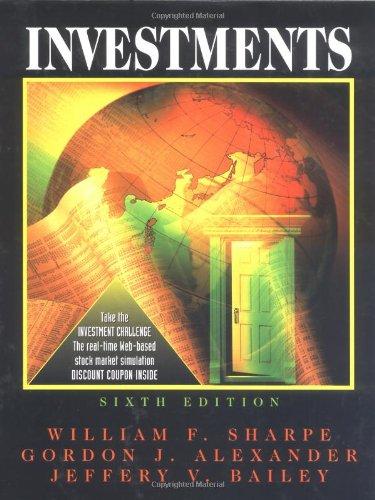Question
(Providing downside protection) Options contracts on the S&P 500 index are similar to options on common stocks. An important similarity is that the S&P 500
(Providing downside protection) Options contracts on the S&P 500 index are similar to options on common stocks. An important similarity is that the S&P 500 index is treated analogously to the share price of an individual common stock. For example, if the index value is 1500, then we treat the options as if their underlying asset were 100 shares of a stock with a share price of $1,500. You have the following information.
Today is early December 2015. The S&P 500 index today is S0 = 2,090.
December 2016 put options on the S&P 500 index with a strike price of K = 2,050 have a
premium of p = $90. These options are European style exercise.
Time to expiration is approximately one year.
The on 0year risk-free rate is 1.5% per annum. Because the rate is low, the continuously
compounded rate will be approximately the same.
Suppose that you construct a protective put using one December put option. You own a well- diversified portfolio of U.S. stocks similar to the S&P 500 index. The value of your portfolio equals $100 times the S&P 500 index. Suppose that the S&P 500 index has fallen to 1,750 by December 2016 when the put option expires, and your portfolio has fallen in value by the same percent. What is the total strategy profit or loss from executing the protective put strategy with one December put? (Assume that all positions are held open until expiration.)
Step by Step Solution
There are 3 Steps involved in it
Step: 1

Get Instant Access to Expert-Tailored Solutions
See step-by-step solutions with expert insights and AI powered tools for academic success
Step: 2

Step: 3

Ace Your Homework with AI
Get the answers you need in no time with our AI-driven, step-by-step assistance
Get Started


